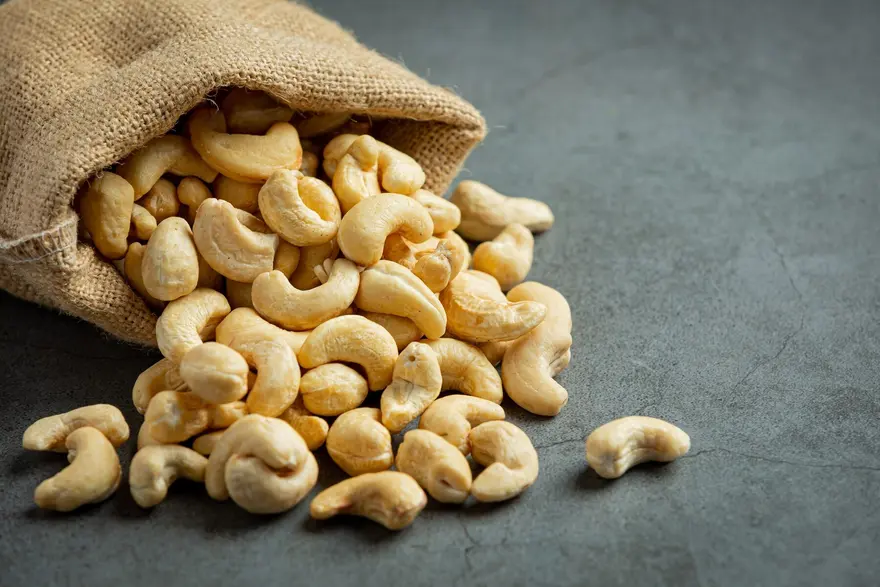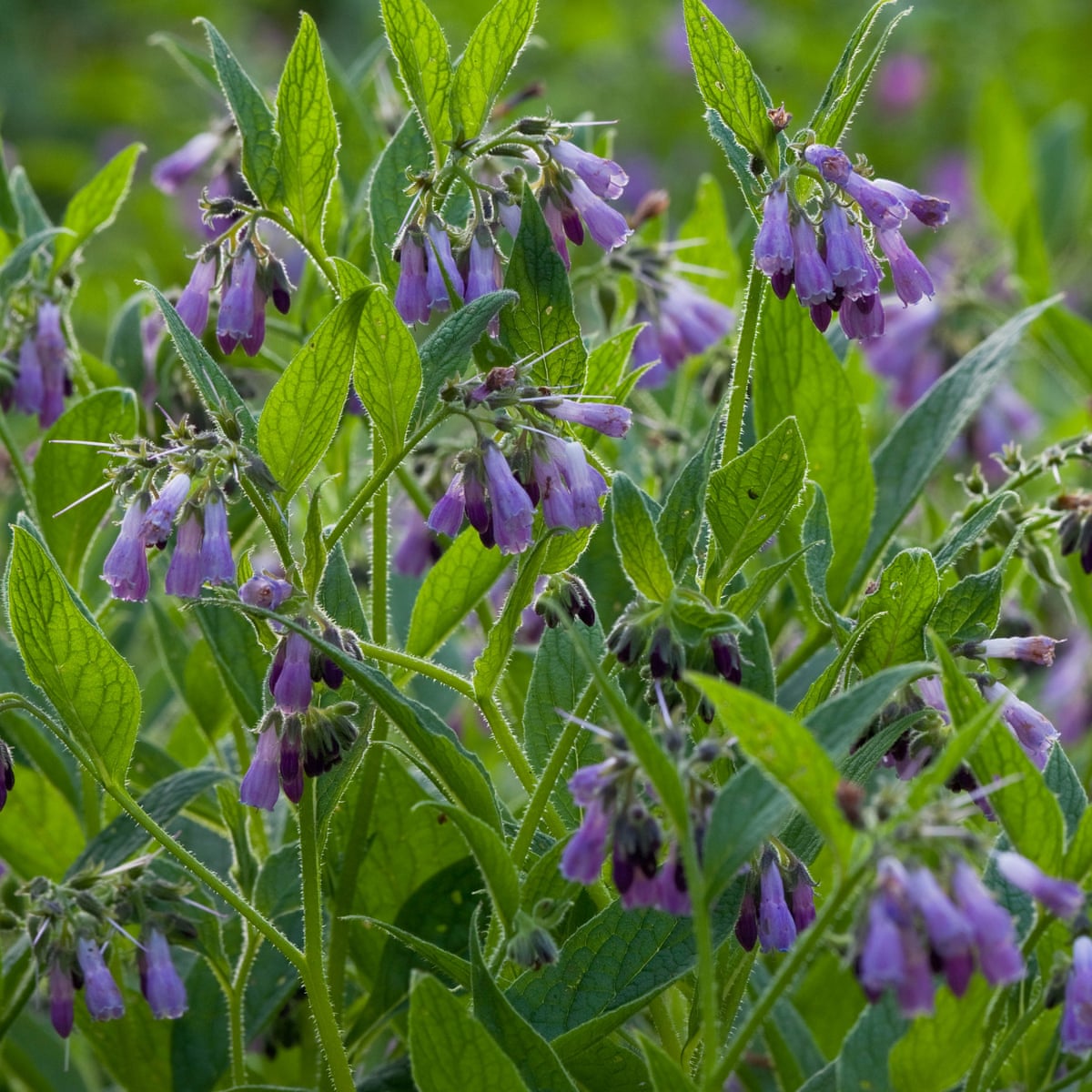What Are Cashew Nuts?
As you read down you’d get to know amazing benefits of cashew nuts, but first understand that they are commonly referred to as nuts, are technically seeds. They are derived from the cashew fruit, which is classified as a drupe.
Drupes are a type of fruit characterized by a fleshy outer layer that encases a hard shell containing a seed. Cashews belong to the Anacardiaceae plant family, which includes other well-known plants such as mangoes, sumac, and poison ivy.
Native to tropical climates, cashew trees thrive in warm regions, with India and Vietnam being among the world’s largest producers. Thanks to their staggered harvest seasons in different parts of the world, cashew nuts are available year-round in many countries, including the UK.
Cashews are small, kidney-shaped seeds with a pale yellow color. They have a rich, nutty flavor and a slightly sweet taste, often considered milder and sweeter than peanuts. Versatile in culinary applications, they can be consumed raw, roasted, or processed into cashew butter. Additionally, they are a popular ingredient in a variety of dishes such as curries, stir-fries, baked goods, and desserts.
Nutritional Profile of Cashew Nuts
Cashew nuts are not only delicious but also pack an impressive nutritional punch. A 30g serving of raw cashew nuts contains:
- Calories: 166 kcal / 695 kJ
- Protein: 5.5g
- Fat: 13g (predominantly unsaturated fats)
- Carbohydrates: 9g
- Fiber: 1g
- Iron: 2mg (approximately 11% of the recommended daily intake for adults)
- Magnesium: 88mg (about 20% of the recommended daily intake)
- Zinc: 1.7mg (around 15% of the recommended daily intake)
Cashews are a particularly good source of plant-based protein and healthy unsaturated fats, which are known for promoting heart health. While a 30g serving provides roughly 160 calories, their high protein and fat content help keep you feeling fuller for longer, aiding in appetite control and satiety.

Additionally, cashew nuts are rich in essential minerals. They supply a significant portion of magnesium, a mineral crucial for hormonal balance, energy production, and bone health.
They also contain manganese, selenium, and zinc, which support immune function, antioxidant defense, and overall metabolic health. Iron content in cashews contributes to red blood cell production and oxygen transport, making them a nutrient-dense snack or ingredient in your daily diet.
Health Benefits of Cashew Nuts
- Support Cardiovascular Health:
- Help protect against narrowed arteries, promoting better blood flow.
- Reduce the risk of heart disease and stroke by providing healthy unsaturated fats.
- Longevity and Disease Prevention:
- Contribute to a longer lifespan due to their nutrient-rich profile.
- Contain antioxidants that help protect against certain chronic diseases.
- Bone and Joint Health:
- May reduce symptoms of osteoarthritis by providing anti-inflammatory benefits.
- Digestive Health:
- May help manage colitis symptoms, supporting gut health.
- Weight Management:
- Support healthy weight loss by promoting satiety with protein and healthy fats.
- Blood Sugar Regulation:
- May assist in managing blood sugar levels, reducing the risk of diabetes complications.
- Neurological Benefits:
- Help reduce the risk of stroke by improving circulation and protecting blood vessels.
- May help prevent memory loss by supplying brain-friendly nutrients.
Are Cashew Nuts Good for You?
Cashew nuts are highly nutritious and provide a range of health benefits. Here’s a detailed look at how they contribute to overall well-being:
- Protect Against Atherosclerosis and Lower Cholesterol Levels
- Cashew nuts are rich in folate and vitamin E, which help prevent the buildup of plaque in arteries, reducing the risk of atherosclerosis (blocked or narrowed arteries).
- A 2019 study highlighted that daily consumption of cashews can improve cholesterol levels, particularly in individuals with type 2 diabetes. Regular intake may lower LDL (bad cholesterol) and improve HDL (good cholesterol) levels, promoting heart health.
- Contribute to Longevity
- Cashews are high in unsaturated fats, which are known to support overall health and longevity. Research suggests that diets rich in unsaturated fats reduce the risk of total mortality and death from specific causes such as cardiovascular disease and cancer.
- By replacing unhealthy fats with those found in cashews, you can support a longer and healthier life.
- Protect the Body Against Oxidative Stress
- Cashews are an excellent source of antioxidants, including polyphenols and carotenoids, which combat oxidative stress.
- Oxidative stress occurs when there is an imbalance between free radicals and antioxidants in the body, potentially causing damage to tissues, organs, and cells. Over time, this damage is linked to chronic diseases like Parkinson’s, Alzheimer’s, and multiple sclerosis. Cashews help neutralize free radicals, offering protection against these conditions.
- Reduce the Risk of Heart Disease and Stroke
- High levels of homocysteine, an amino acid in the body, are associated with inflammation and an increased risk of heart disease and stroke.
- Cashews help lower homocysteine levels, reducing inflammation and protecting cardiovascular health. Their unsaturated fats, magnesium, and antioxidants further enhance this benefit.
- Support Joint Health and May Reduce Osteoarthritis Degeneration
- Osteoarthritis, a degenerative joint condition, is linked to inflammation and oxidative damage.
- A 2020 study found that the combination of antioxidants and anti-inflammatory compounds in cashews can alleviate the negative effects of osteoarthritis. Regular consumption may improve joint mobility and reduce pain over time.
Incorporating cashew nuts into your diet can be a simple and delicious way to promote heart health, protect against chronic diseases, enhance longevity, and support joint health. However, moderation is key, as cashews are calorie-dense. A small handful (about 30g) a day can provide significant health benefits while maintaining a balanced diet.
- May Help in the Management of Colitis
- Colitis is an inflammatory condition affecting the colon, often causing pain, bloating, and digestive issues.
- Research suggests that cashew nuts, with their anti-inflammatory properties, may help reduce inflammation associated with colitis, potentially alleviating symptoms and promoting better gut health.
- Support Healthy Weight Loss
- Diets that include nuts, such as cashews, are linked to reduced weight gain and a lower risk of obesity.
- Cashews are rich in protein, healthy fats, and fiber, all of which promote satiety, helping you feel fuller for longer and reducing overall calorie intake. Despite being calorie-dense, moderate consumption can support weight management by curbing unhealthy snacking.
- Aid in Blood Sugar Management
- A 2019 study demonstrated that daily consumption of cashew nuts improved insulin sensitivity, which is crucial for blood sugar control in individuals with diabetes.
- The high protein and unsaturated fat content in cashews helps stabilize blood sugar levels by slowing the absorption of carbohydrates, reducing blood sugar spikes.
- May Reduce the Risk of Stroke
- Cashew nuts are an excellent source of magnesium, a mineral essential for maintaining healthy blood pressure and vascular function.
- Studies have shown that higher magnesium levels in the blood are associated with a reduced risk of stroke, making cashews a heart-friendly addition to your diet.
- May Help Protect Against Memory Loss
- Cashews provide a powerful combination of nutrients, including protein, essential fats, vitamins (like vitamin E), and minerals (such as zinc and magnesium), which support brain health.
- These nutrients may help protect against cognitive decline and memory loss, potentially offering benefits for conditions like Alzheimer’s disease as part of a balanced diet.
Final Note
Cashew nuts are a nutrient-packed superfood that offers a wide range of health benefits. From supporting weight management and reducing inflammation to promoting heart and brain health, cashews can be an excellent addition to a balanced diet. However, it’s important to consume them in moderation to avoid excessive calorie intake and to opt for unsalted or minimally processed varieties for maximum health benefits.
Are They Safe for Everyone?
While cashew nuts are highly nutritious, they may not be suitable for everyone:
- Allergies:
- It is possible to have a cashew nut allergy, which can cause symptoms such as difficulty breathing, swelling of the face, tongue, or lips.
- Severe allergic reactions can be life-threatening and require immediate medical attention. If symptoms occur, call emergency services (e.g., 999 in the UK) right away.
- Those with an existing nut allergy, particularly to tree nuts, are more likely to also be allergic to cashews.
- Other Considerations:
- Individuals with kidney issues or who are prone to kidney stones should consume cashews in moderation, as they contain oxalates, which may contribute to stone formation.
- People with certain metabolic disorders may need to consult a healthcare provider before including cashews in their diet.
Is Cashew Cheese Good for You?
Cashew cheese is a popular plant-based alternative to traditional cheese and can be a healthy choice:
- Minimally Processed:
- Cashew cheese is typically made with just a few simple ingredients, such as cashews, water, lemon juice, and nutritional yeast. This makes it a wholesome and minimally processed option.
- Unlike many vegan cheese alternatives, it avoids the inclusion of artificial additives, excessive sugar, or oils.
- Nutritional Benefits:
- Cashew cheese retains many of the health benefits of cashews, including their rich content of healthy fats, protein, and minerals such as magnesium and zinc.
- It is dairy-free, making it suitable for those who are lactose intolerant or following a vegan diet.
- Tips for Choosing Cashew Cheese:
- Always check the ingredient label to ensure it does not contain added sugars, oils, or preservatives. Homemade cashew cheese is an excellent option for full control over the ingredients.
The Bottom Line
Cashew nuts are a nutrient-dense food with numerous health benefits, providing protein, unsaturated fats, vitamins, and minerals. However, to maximize their health benefits:
- Consume in Moderation: As with all nuts, cashews are calorie-dense, so portion control is important. A small handful (about 30g) is typically a healthy serving.
- Choose Raw or Lightly Roasted Varieties: Raw cashews are the healthiest option, while salted, honey-roasted, or heavily processed varieties can negate their natural health benefits.
- Incorporate Cashews Into a Balanced Diet: Use cashews as part of a diverse and balanced diet for optimal health benefits.
If you have any allergies or specific dietary concerns, consult with a healthcare provider before adding cashews or cashew-based products to your diet.
Benefits of Cloves to The Vagina

A graduate of Computer Science and Information Management Technology. Diploma – Caregiving, Certificates – Dementia and Diabetes Awareness and Management. A researcher, blogger, songwriter, singer and acoustic guitarist. Born in an environment where natural talents such as healing are imparted at our natural birth. This natural talents of healing is the result of our genetic inheritance and the training from family environment.













